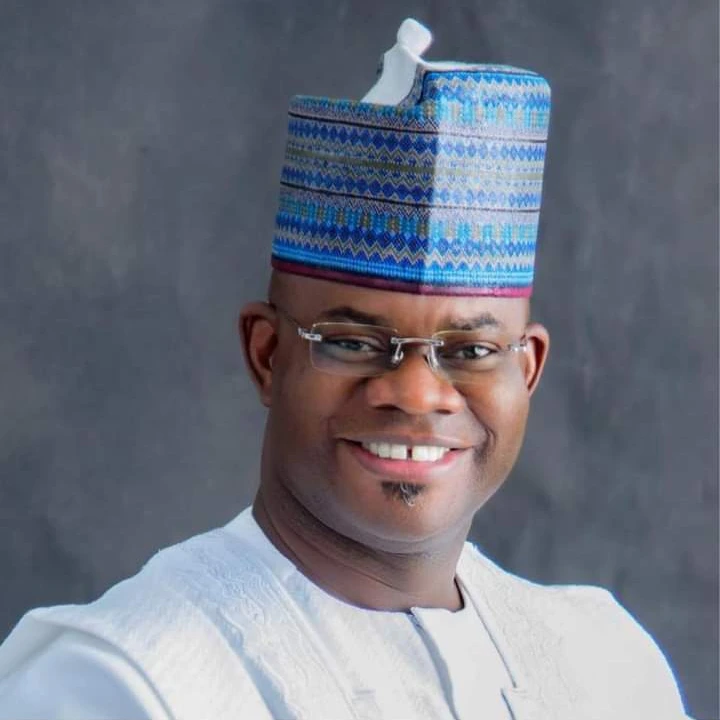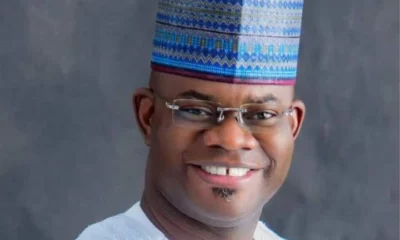GRBusiness
How Nutritious is Your Product?


By Iquo Ukoh, Chief Executive Officer, Entod Marketing Ltd
According to the 2017 Multiple Indicator Cluster Survey a staggering 43.6% of Nigerian children are stunted – not growing at the pace they should. Are you in manufactured Food Business? What is the Nutritional value of your product? Will your product helpto nourish your customers and ensure they remain healthy enough to makerepeat purchases?
The fight against nutritional deficiencies can only be won with a multifaceted approach. It calls for individuals, food producers and the government joining hands together to ensure success.
In the last few years, there has been some heightened level of nutrition awarenessamongst some Nigerians. Primarily as a result of the volume of information that is readily available on the internet.
Despite this, the level of nutrition knowledge amongst the larger percentage of the populace remains low. How do you explain a consumer that says that ‘boiled corn has less carbohydrate than roast corn’? Or a young lady on a reducing diet feasting on fruits and saying ‘I have tried to lose weight but the reading on my scale is not moving downwards’. For this lady fruits are not carbohydrates and so should not affect her weight.
For food producers or manufacturers on the other hand there is a need to consciously ensure that foods meant for consumers provide the required nutrients. In addition they should provide sufficient nutritional information on their product packs, for consumers to make informed food choices.
The mother that buys food for her young child is totally dependent on the producer to ensure that the content of the product she buys will meet the need of her child. We eat a pack of chin-chin or plantain chips and may not be aware of the amount of carbohydrate, fat or saltit contains.
Do food producers know what to do?
Whilst we cannot argue that every business is set out to be financially viable, however, the food producer should approach his/her enterprise from the mindset of a social entrepreneur.
A shift in orientation is what is needed such that it is possible for the producer to achieve both objectives. The starting point therefore is for the food producer to have some nutrition knowledge or get the service of an expert in this area.
This will be one way to ensure provision of nutritious products and communicate clearly the product nutritional benefit on labels.
Observation shows that some producers of packaged goods feed on the poor knowledge of consumers, and therefore make unsubstantiated claims on their product labels. Some others just go with the flow of what is in vogue. How do you explain ‘gluten free’ yam flour?
In the first place gluten only exists in some grains so why put such a claim on a root tuber? In other instances there is no nutrition information to consumers at all on the pack.
So, is this the case of the producer not having the right nutrition knowledge about his/her product and therefore cannot properly label or is there nothing nutritional about the product?
Is there a Consumer knowledge gap?
For many Nigerians the daily contact with nutrition is mainly on food product labels. Nutrition as a subject only starts to be taught in secondary school and even at that it is not compulsory.
Even for those that take the subject in school, it is Home Economics and Nutrition with the former been the greater subject content. No wonder the ability to make informed food choices in adulthood becomes a problem.
Research has shown that a lot of the common food-related ailments like diabetes and obesity can be prevented or the incidences reduced if there is adequate nutrition knowledge. The educational system may have to consider introducing nutrition as a subject right from primary school. There is certainly a gap in knowledge.
Making foods nutritious is possible
Whilst the consumers struggle to understand basic balanced diet the producer should be positioned to provide nutrition information in simple understandable language to guide the consumer in making healthy food choices. It is a responsibility the food producer cannot leave to government food regulatory agencies alone.
As a consumer I want to know what a packet of plantain chips can contribute nutritionally to my daily food intake requirement. Indeed what does it do for me? It is not enough to list out ingredients in quantities I do not understand.
I want to know if your product will help improve my eyesight, help my skin glow or increase my energy level to work. In the case of children’s foods the mum wants to know if the food will promote growth, make the child have strong bones and teeth.
A call for Social Impact
‘How does your product ensure that if consumed, it can contribute to a greater workforce for tomorrow?’ ‘Does your product offer good nutrition, or empty calories?’
As Businesses you control the product, have the reach and can trigger the desires of the consumer, put your assets to good use, you are critical in this fight against malnutrition.
The 2013 Nigerian Demographic and Health Survey indicates that 25% of our women population are overweight/obese. The time is now for food producers especially the small and medium enterprises to act. After all, you cannot claim what you don’t have in your products.
As government and researches identify nutritional gaps and prevalent deficiencies, it is the social responsibility of every food producer to help fill these gaps. Today it is clear that we have issues of micronutrient deficiencies.
Vitamin A, Iron and Zinc are some of the areas that food producers can work on to improve guaranteed consumption by the populace’. Some of these nutrients can be either incorporated in foods by fortification or ensuring the use of food produce that already contains these nutrients.
The work of ensuring a healthier nation and consequently a more productive work force is in our hands.
Mrs. IquoUkoh is the Chief Executive Officer of Entod Marketing Ltd, a dynamic marketing services company purposed to help businesses succeed in West Africa. This article is sponsored by the Scaling Up Nutrition Business Network. They can be reached via [email protected]
Transport
Federal Government To Launch Out 2700 CNG Buses, Tricycles Ahead Of First anniversary Of Tinubu’s Administration


The Presidency on Sunday said it was ready to launch about 2,700 CNG-powered buses and tricycles before May 29 when President Bola Tinubu turns one year in office.
“All is now ready for delivery of the first set of critical assets for deployment and launch of the CNG initiative ahead of the first anniversary of the Tinubu administration on May 29.”
It said the Federal Government is set to deliver 100 conversion workshops and 60 refuelling sites spread across 18 states before the end of 2024.
The Special Adviser to the President on Information and Strategy, Mr. Bayo Onanuga, revealed this in a statement he signed Sunday titled ‘Presidential CNG initiative set for rollout.’
“From the end of May, Nigeria will take some baby steps to join such nations that already have large fleets of CNG vehicles.




“All is now ready for delivery of the first set of critical assets for deployment and launch of the CNG initiative ahead of the first anniversary of the Tinubu administration on May 29.
“About 2,500 of the tricycles will be ready before May 29, 2024…working towards delivering 200 units before the first anniversary of the Tinubu administration,” said the Presidency.
He also said that over 600 buses are targeted for production in the first phase which will be accomplished in 2024.
In October 2023, about five months after the removal of the petrol subsidy, President Tinubu launched the Presidential CNG Initiative to deliver cheaper, safer and more climate-friendly energy.
The CNG Initiative was designed to deliver compressed natural gas, especially for mass transit.
The Federal Government earmarked N100bn (part of the N500bn palliative budget) to purchase 5500 CNG vehicles (buses and tricycles), 100 Electric buses and over 20,000 CNG conversion kits, with plans to develop CNG refilling stations and electric charging stations nationwide.
The FG had said the initiative would ease the burden of the increased pump price on the masses.More information added that the creation of a new plant on the Lagos-Ibadan Expressway that will assemble the tricycles while Brilliant EV will assemble electric vehicles when it receives the Semi Knocked Down components.




The Presidency explained further, “The SKD parts manufactured by the Chinese company LUOJIA in partnership with its local partner to support the consortium of local suppliers of CNG tricycles are set for shipment to Nigeria and expected to arrive early in May.
It is expected that before 2027, There’ll be a considerable wave of these buses and tricycles in use.
Finance
Immigration Office Place Ex Governor, Yahaya Bello On Watchlist While IG Of Police Withdraws All Police Officers Attached To Him


The Inspector General of Police, Olukayode Egbetokun, has withdrawn all police officers attached to the embattled former Governor of Kogi State, Yahaya Bello.
The order for the withdrawal was contained in a police wireless message. The document with reference number:
“CB:4001/DOPS/PMF/FHQ/ABJ/VOL.48/ 34 reads in part;“IG has ordered the withdrawal of all policemen attached to His Excellency and former Executive Governor of Kogi State, Alhaji Yahaya Bello. Acknowledge compliance and treat with utmost importance.
Please, above, for your information and strict compliance.”
Meanwhile, the Nigerian Immigration Service has placed the former governor on its watchlist.
This comes after the Economic and Financial Crimes Commission on Thursday, April 18, declared him wanted in connection to an alleged case of money laundering to the tune of N80.2bn.


In a circular signed by an Assistant Comptroller of Immigration, DS Umar, for the Comptroller-General, Kemi Nandap, the NIS detailed the former governor’s name, nationality, and passport number.


And read;
“I am directed to inform you that the above-named person has been placed on the watch list.
Suffice to mention that the subject is being prosecuted before the Federal High Court Abuja for conspiracy, breach of trust, and money laundering vide letter Ref; CR; 3000/EFCC/LS/EGCS.1/ TE/Vide/1/279 dated April 18, 2024.
If seen at any entry or exit point, he should be arrested and referred to the Director of Investigation or contact 08036226329/07039617304 for further action.” the circular reads in part.
Finance
BREAKING: EFCC Declares Former Kogi State’s Governor, Yahaya Bello Wanted


The Economic and Financial Crimes Commission has declared a former governor of Kogi State, Yahaya Bello, wanted for offences relating to economic and financial crimes.
This was contained in a notice posted on the commission’s official Facebook page on Thursday.
The notice read, “The public is hereby notified that Yahaya Adoza Bello (former Governor of Kogi State), whose photograph appears above is wanted by the Economic and Financial Crimes Commission in connection with alleged case of Money Laundering to the tune of N80,246,470,089.88
“Bello, a 48-year-old Ebira man, is a native of Okenne Local Government of Kogi State.
“His last known address is: 9, Benghazi Street, Wuse Zone 4, Abuja.”
The notice asked anybody with useful information about the former governor’s whereabouts to contact any of the commission’s offices across the country.
The anti-graft commission had earlier stated that it would, on Thursday (today), arraign the former governor before a Federal High Court sitting in Abuja.
This was after the EFCC was granted a warrant of arrest by the Federal High Court in Abuja to apprehend the former governor.
Punch reported that The agency’s team of lawyers, led by Kemi Pinheiro, SAN, during the proceedings on Thursday, said that EFCC operatives were prepared to carry out the arrest warrant for the former governor, even if it requires the use of force.
Bello and three other suspects, Ali Bello, Dauda Suliman, and Abdulsalam Hudu, will be arraigned before Justice Emeka Nwite.
They face 19 counts related to money laundering to the tune of N80,246,470,088.88.
-





 Finance5 days ago
Finance5 days agoBREAKING: EFCC Declares Former Kogi State’s Governor, Yahaya Bello Wanted
-





 Spotlight3 days ago
Spotlight3 days agoPresident Tinubu Congratulates Tunde Onakoya On Guinness World Chess Record
-





 Politics3 days ago
Politics3 days agoGovernor Of Delta State, Sheriff Oborevwori Visits Fled Community Of Okuama, Calls Indigenes To Return Home
-



 Finance4 days ago
Finance4 days agoImmigration Office Place Ex Governor, Yahaya Bello On Watchlist While IG Of Police Withdraws All Police Officers Attached To Him
-





 Transport1 day ago
Transport1 day agoFederal Government To Launch Out 2700 CNG Buses, Tricycles Ahead Of First anniversary Of Tinubu’s Administration
-





 News16 hours ago
News16 hours agoNigeria Has Secured $2.25B World Bank Loan With An Interest Rate Of 1% – Minister Of Finance








